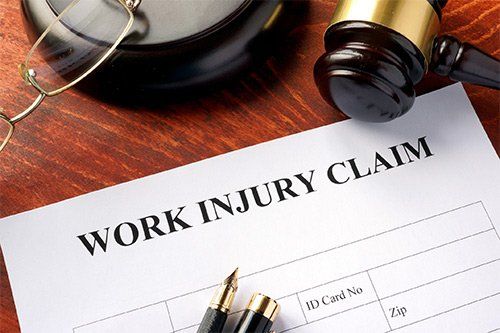The Difference Between Workers' Comp & a Personal Injury Case
If you have been injured on the job, you may not know exactly what to do right now. After all, injuries can be difficult to cope with on their own, let alone when you throw in a potential legal case.
The truth is that the same types of injuries can lead to workers' comp cases or personal injury cases. Understanding the different legal options you can pursue is critical to recovering the damages you deserve.
What Is Workers' Compensation?
Workers' comp refers to the insurance employers are required to hold. This insurance covers any work-related injuries for employees. Worker's comp would cover the costs associated with medical benefits and rehabilitation, for instance.
Worker's comp is considered no-fault insurance, which means that you have access to benefits regardless of who prompted the injury. This means that even if you are deemed at-fault for the accident that caused your injury, you can receive benefits. Keep in mind that generally, receiving worker's comp means you are not legally allowed to sue your employer for the same injury.
What Is a Personal Injury?
A personal injury refers to the civil action you might take when you feel that another party is responsible for your injuries. If you believe another party should be liable for your medical bills, disability, and lost wages, you might pursue a personal injury case.
Additionally, pursuing a personal injury case also means that you have the right to sue for non-economic damages. These include issues like pain and suffering, which often relates to loss of companionship or emotional aggravation. While this is not possible for all cases, it may be a potential option for you.
One case in which you might pursue a personal injury case and workers' compensation is if you were injured by a piece of equipment or machinery. This would be a third-party or product liability lawsuit in which you are suing a manufacturer or other business for creating an unsafe product, for example.
Ultimately, you need not be an employee of any company in order to be eligible to sue for a personal injury. In fact, you could even be a customer of a store to sue the entity.
What Do You Need to Consider Before Pursuing a Case?
First, consider that not all employers are required to have workers' comp insurance. This means that you may not necessarily have a choice but to pursue a personal injury claim against your employer.
If your employer does not offer workers' comp, a personal injury case is your next step. Before you pursue a personal injury case, you have a lot to consider. First, you need to consider the fault of the incident. If you were at fault for the injury you experienced, you may not have a strong personal injury case.
Next, you need to consider the monetary value of the case. If you have non-economic damages to consider, like emotional pain or loss of companionship, a personal injury case is an effective avenue to pursue. Non-economic damages include those factors for which you may not be able to prove losses with a receipt or bill.
What Should You Do Next?
Your next step should involve getting in touch with a personal injury or workers' compensation attorney. It is hard to understand the differences between these types of cases, but an attorney will help you follow the right path.
Wegner & Associatesoffers solace and legal representation for those suffering with injuries after an accident. We can help you determine which legal option is best for your case. Call our office today to discuss the best way to move forward after your injury.

